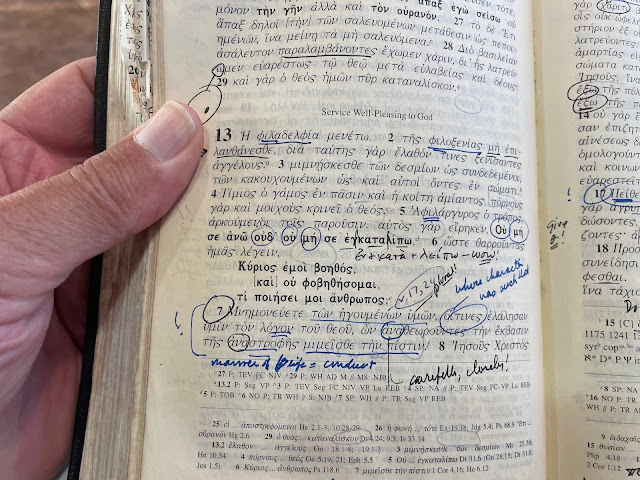The first time I saw Heb. 13:5 ("I will never leave you or forsake you") in the Greek was while taking intermediate Greek grammar at Biola.
I was told that when you see a double negative in Greek, it means the precise opposite of what it means in English. A double negative for us means, "Yes." A double negative in Greek intensifies the negation. It means "I will never" or "I will certainly not." So as I came to Heb. 13:5, I said to myself, "I bet the author uses a double negative here." I was wrong. It wasn't a double negative. It was a quintuple negative. That is amazing. To prevent our ever doubting it, God gives us a quintuple negative promise:
"I will never, ever leave you, nor will I ever, ever forsake you."
My point is -- Do you need Greek to to be able to see this? Of course not. Any good exegetical commentary on Hebrews will point it out. But --BUT! -- there is something to be said about seeing it for yourself.
It was Luther who said, "Reading the Bible in translation is like kissing your bride through the veil."
No thanks!
